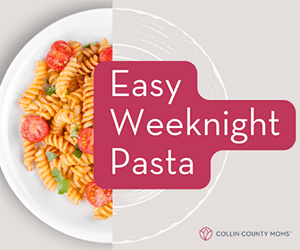Disclaimer :: I am in no way a medical professional; this is solely my research and experience with heart disease. Please consult your doctor if you have any questions or concerns regarding your own health.
 Heart disease is the leading cause of death for women in the United States.
Heart disease is the leading cause of death for women in the United States.
Read that again.
It’s not cancer, or diabetes, or any other disease or ailment. In 2020, approximately one in five women died from heart disease. When you think of heart disease, you may picture an older man clutching his chest. But heart disease is much more than chest pains or a heart attack. It affects women almost as much as men. We need to be more aware of how much heart disease affects us, and what precautions and small steps we can take to maintain good heart health.
Risk Factors
If you have high blood pressure, you already have an increased risk for heart disease. High blood pressure have few physical symptoms, so it’s easy to miss. The only way to know if you’re at risk is to have your blood pressure checked by a medical professional. Ask for a cholesterol and blood sugar check as well, since high cholesterol levels and diabetes are other risk factors for heart disease.
Almost half of the population in the United States has at least one risk factor for heart disease. Other factors include obesity, unhealthy diet, low physical activity, smoking, and drinking alcohol excessively.
Signs and Symptoms
Heart disease is more than just heart attacks. There are other signs of heart disease which, if addressed early, can prevent you from having a life-threatening episode.
Angina is the sharp chest pain that most people understand as a symptom of heart disease. The pain can also be dull and heavy, and spread to the neck, jaw, throat, upper abdomen, or back. Some other symptoms you might have in tandem with these pains are nausea, vomiting, dizziness, shortness of breath, and fatigue. You may also feel arrhythmia, which is fluttering heart palpitations.
>> RELATED READ :: Women’s Heart Health:: Know the Facts <<
If you are having angina, arrhythmia, or symptoms of heart disease, contact your doctor immediately. If you believe you are having a heart attack, call 911.
Lowering Your Risk
It’s easy to say you can avoid heart disease if you just eat better, live healthier, avoid bad habits, and schedule routine check-ups with your doctor. But thinking those things doesn’t solve the problem. Most of us need more defined, more attainable, concrete steps to achieve better heart health. Here are some actionable ways to lower your risk:
- Ask questions when you go to the doctor. You have your blood pressure checked at every appointment, but do you know what the reading means? Pay attention when medical professionals measure your blood pressure, and ask them if your reading is in a normal range.
- Don’t smoke. This is no surprise. Your overall health will be much better if you do not smoke nicotine.
- Eat at home. Eating out can be more fun and convenient sometimes, but cooking and eating at home is usually going to be healthier. Even junk food options, like pizza or nachos, usually has less oils and fats when you make it at home. When cooking for yourself, you can be more mindful of the ingredients and portions you’re putting into your body.
>> RELATED READ: Quick, Easy, and Healthy Family Favorite Dinners {Recipes} <<
- Skip the alcohol. After a long day, it may be a ritual for you to pour a glass of wine and kick back. But if the purpose is to relax and unwind, try decaffeinated tea instead. It’s therapeutic, it’s soothing, and it’s much better for your health. Save the drinks for social outings or celebrations.
- Take a walk. Take a stroll around the neighborhood, around the block, or even just around your house. Find 30 minutes in your day when you might usually watch a TV show, and instead find a way to move. Bring the kids along or go solo.

Community Supports
If you are looking for more support in your heart health journey, check out these organizations designed to help you lower your risk for heart disease.
- The “Live to the Beat” campaign was created to help African American women and men ages 35 to 54 reduce their risk of cardiovascular disease.
- Million Hearts is an initiative to prevent one million heart attacks and strokes within five years. This organization provides resources and support for women and men.
- WISEWOMAN, or Well-Integrated Screening for and Evaluation for WOMan Across the Nation was created to help women understand how to reduce their risk of heart disease. It also provide services to help women keep their hearts healthy. Administered by the CDC’s Division for Heart Disease and Stroke Prevention (DHDSP), this program is targeted for women ages 40 to 64, including women who are uninsured or with low income.
Taking care of your body and heart is important year-round, not just during American Heart Month. Even small, easy changes to your daily routine puts your heart on a healthier track and reduces your risk of heart disease. Keep it up!













